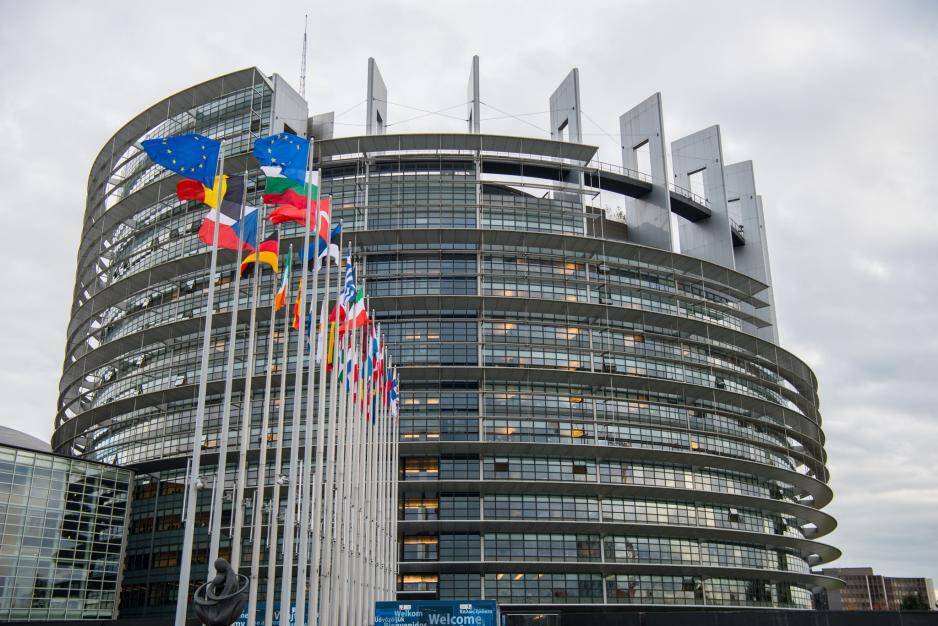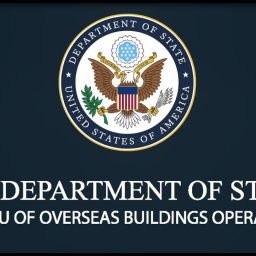European Parliament resolution of 8 July 2021 on the EU Global Human Rights Sanctions Regime (EU Magnitsky Act) (2021/2563(RSP))

The European Parliament,
– having regard to its recommendation to the Council of 2 February 2012 on a consistent policy towards regimes against which the EU applies restrictive measures, when their leaders exercise their personal and commercial interests within EU borders(1),
– having regard to its resolution of 14 March 2019 on a European human rights violations sanctions regime(2),
– having regard to its previous resolutions calling for an EU-wide mechanism for imposing targeted sanctions against individuals involved in grave human rights violations, including its resolution of 4 September 2008 on the evaluation of EU sanctions as part of the EU’s actions and policies in the area of human rights(3), its resolution of 11 March 2014 on the eradication of torture in the world(4) and its resolution of 20 January 2021 on the implementation of the Common Foreign and Security Policy – annual report 2020(5),
– having regard to its resolution of 20 January 2021 on human rights and democracy in the world and the European Union’s policy on the matter – annual report 2019(6),
– having regard to its resolution of 13 September 2017 on corruption and human rights in third countries(7) and its resolution of 5 July 2016 on the fight against trafficking in human beings in the EU’s external relations(8),
– having regard to its resolutions on breaches of human rights, democracy and the rule of law (known as urgency resolutions) in accordance with Rule 144 of its Rules of Procedure,
– having regard to Title V, Chapter 2 of the Treaty on European Union (TEU), regarding the adoption of sanctions under the Common Foreign and Security Policy (CFSP),
– having regard to Article 21 TEU on the principles of international actions of the Union, including respect for the principles of the United Nations Charter and international law,
– having regard to Article 31(2) TEU on specific provisions on the CSFP,
– having regard to Article 215 of the Treaty on the Functioning of the European Union (TFEU) on the adoption of sanctions against both third countries and individuals, groups and non-state entities,
– having regard to Declaration 25 of the Lisbon Treaty on the need to ensure due process rights of individuals or entities concerned by EU restrictive measures or EU measures in combating terrorism,
– having regard to the joint proposal by the Commission and the VP/HR of 19 October 2020 concerning restrictive measures against serious human rights violations and abuses (JOIN(2020)0020),
– having regard to Council Decision (CFSP) 2020/1999(9) and Council Regulation (EU) 2020/1998(10) of 7 December 2020 concerning restrictive measures against serious human rights violations and abuses,
– having regard to Council Implementing Regulation (EU) 2021/371 of 2 March 2021(11) and Council Implementing Regulation (EU) 2021/478 of 22 March 2021(12) implementing Regulation (EU) 2020/1998 concerning restrictive measures against serious human rights violations and abuses,
– having regard to Directive (EU) 2017/1371 of the European Parliament and of the Council of 5 July 2017 on the fight against fraud to the Union’s financial interests by means of criminal law(13),
– having regard to Council Regulation (EU) 2017/1939 of 12 October 2017 implementing enhanced cooperation on the establishment of the European Public Prosecutor’s Office (‘the EPPO’)(14),
– having regard to the Council conclusions of 18 November 2020 on the EU Action Plan on Human Rights and Democracy 2020–2024,
– having regard to the EU Strategic Framework on Human Rights and Democracy of 2012,
– having regard to the Commission guidance note of 17 December 2020 on the implementation of certain provisions of Council Regulation (EU) 2020/1998 (C(2020)9432),
– having regard to the Universal Declaration of Human Rights and other UN human rights treaties and instruments,
– having regard to the United Nations Convention against Corruption and the political declaration of the special session of the General Assembly on challenges and measures to prevent and combat corruption and strengthen international cooperation of 2–4 June 2021,
– having regard to the European Convention on Human Rights and the protocols thereto,
– having regard to its study of 26 April 2018 entitled ‘Targeted sanctions against individuals on grounds of grave human rights violations – impact, trends and prospects at EU level’,
– having regard to the decision of the Criminal Chamber of the Spanish Supreme Court of 26 November 2020 regarding Council Decision (CFSP) 2017/2074 of 13 November 2017 concerning restrictive measures in view of the situation in Venezuela(15),
– having regard to the questions to the Commission and to the Vice-President of the Commission / High Representative of the Union for Foreign Affairs and Security Policy on the EU Global Human Rights Sanctions Regime (EU Magnitsky Act) (O‑000047/2021 – B9‑0028/2021 and O‑000048/2021 – B9‑0029/2021),
– having regard to Rules 136(5) and 132(2) of its Rules of Procedure,
– having regard to the motion for a resolution of the Committee on Foreign Affairs,
A. whereas Article 21 TEU stipulates that the actions of the Union shall be guided by democracy, the rule of law, the universality and indivisibility of human rights and fundamental freedoms, respect for human dignity, the principles of equality and solidarity, and respect for the principles of the United Nations Charter and international law;
B. whereas under Article 215 TFEU the EU adopts sanctions, either as the EU’s own measures (i.e. autonomous sanctions) and/or in order to implement United Nations Security Council resolutions, in cases where non-EU countries, natural or legal persons, groups or non-state entities do not respect international law or human rights, or pursue policies or actions that do not abide by the rule of law or democratic principles;
C. whereas the Commission communication of 19 January 2021 entitled the ‘European economic and financial system: fostering openness, strength and resilience’ (COM(2021)0032) outlines measures for improving the effectiveness of EU sanctions, ensuring that these are not circumvented or undermined and establishing a sanctions information exchange repository, as well as a roadmap to move from the detection of systemic non-compliance with EU sanctions to infringement procedures before the Court of Justice of the European Union;
D. whereas the Dutch Government initiated a discussion among EU Member States in November 2018 on a targeted human rights sanctions regime at EU level; whereas the Council finally adopted the relevant decision and a regulation establishing an EU Global Human Rights Sanctions Regime on 7 December 2020;
E. whereas the European Parliament systematically condemns cases of human rights violations;
F. whereas very often the resolutions adopted by the European Parliament call for the EU institutions to adopt sanctions, including individual sanctions, against persons suspected of committing crimes against humanity or serious human rights violations;
G. whereas corruption can have a devastating impact on the state of human rights and often undermines the functioning and legitimacy of institutions and the rule of law; whereas Parliament has called for abuses and acts of systemic corruption related to grave human rights violations to be also considered within the EU Global Human Rights Sanctions Regime;
H. whereas the United States, Canada, and the United Kingdom have adopted similar sanction regimes; whereas cooperation among like-minded countries that share the values of fundamental rights, democracy, and rule of law will make the application of targeted sanctions more coordinated and thereby more effective; whereas the UK government launched a Global Anti-Corruption Sanctions Regime on 26 April 2021;
1. Welcomes the adoption of the EU Global Human Rights Sanctions Regime (EU GHRSR) as an essential addition to the EU’s human rights and foreign policy toolbox, which strengthens the EU’s role as a global human rights actor by allowing it to take restrictive measures against legal and natural persons involved in serious human rights violations everywhere in the world; stresses that the new regime must form part of a broader, coherent and clearly defined strategy that takes account of the EU’s foreign policy objectives; underlines that the strategy should also seek to identify specific benchmarks that are connected to the objectives, and detail how sanctions can help meet those benchmarks; regrets, however, that the Council has decided to apply unanimity instead of qualified majority voting when adopting the new regime, and reiterates its call for the introduction of qualified majority voting for the adoption of sanctions under the scope of the EU GHRSR;
2. Welcomes the definition of the regime’s scope with a list of specific serious human rights abuses, including those related to sexual and gender-based violence, and calls on the Commission to come forward with a legislative proposal to amend the current EU GHRSR legislation by extending its scope to include acts of corruption; urges the European External Action Service (EEAS) and the Member States to employ flexibility in adapting it to emerging challenges and threats to human rights or abuse of state or emergency powers, including those related to COVID-19 restrictions or violence against human rights defenders; highlights that the EU’s sanctions are targeted at persons violating human rights and are not intended to impact the enjoyment of human rights by the population;
3. Welcomes the announcement that the Commission will conduct in 2021 a review of practices that circumvent and undermine sanctions, as well as a review of the existing reporting obligations for Member States on the implementation and enforcement of sanctions; calls on the Commission and the Vice-President of the Commission / High Representative of the Union for Foreign Affairs and Security Policy (VP/HR) to take into account the results of this review in order to propose additional legislative changes and implementation guidelines accordingly;
4. Underlines the importance of ensuring that the regime also targets economic and financial enablers of human rights abusers and to the same extent; in case acts of corruption are not included in the revision of the existing regime, calls for the EU and its Member States to draw on the UK legislative proposal for Global Anti-Corruption Sanctions Regulations or the US Global Magnitsky Act or the Canadian Justice for Victims of Corrupt Foreign Officials Act, or other similar regimes, and adopt an EU anti-corruption sanctions regime in order to complement the EU GHRSR;
5. Welcomes the United States’ 2016 Global Magnitsky Act and the leading role this Act has played in inspiring other international actors, including the EU, in its efforts to safeguard human rights;
6. Welcomes the first implementing decisions under the regime, which prove the EU’s commitment to make good use of the new ambitious instrument; encourages the Council to make full use of this instrument in order to strengthen its impact;
7. Is convinced of the effectiveness of the new regime, including its deterrent effects; firmly believes that the highest possible standards in terms of judicial review and proper scrutiny of its implementation are integral to ensure the legitimacy of the regime; emphasises the need for a regular review of listings, clearly defined and transparent criteria and methodology for the listing and de-listing of sanctioned individuals or entities, and appropriate legal procedures through which a listing can be challenged in order to guarantee a thorough judicial review and redress rights;
8. Condemns any countersanctions imposed on the EU, its institutions or members of parliament, bodies or citizens solely for promoting and protecting respect for human rights, democracy and the rule of law through the EU GHRSR; recalls that retaliatory measures are aimed at deterring the EU from pursuing its global actions to protect human rights in line with its Treaty obligations: underlines the need for a swift, robust and coordinated EU response to retaliatory sanctions by third countries and the need to ensure that bilateral agreements with such countries do not undermine the EU GHRSR or the EU’s credibility in foreign policy in general;
9. Stresses the need for all EU Member States to interpret the application and enforcement of sanctions in the same consistent and swift manner; urges the Commission, in its role as guardian of the Treaties, to ensure that national penalties for breaching EU sanctions are effective, proportionate and dissuasive; considers that a failure to take appropriate measures in situations marked by persistent human rights violations would undermine the EU’s human rights strategy, sanctions policy and credibility; believes that a centralised oversight mechanism on implementation and compliance is necessary to ensure stronger sanctions enforcement; welcomes the announcement that the Commission proposes to establish a sanctions information repository and to draw up a roadmap (including criteria and a timetable) for moving from the detection of systematic non-compliance with EU sanctions to infringement procedures before the Court of Justice of the European Union;
10. Stresses that the Member States must ensure that authorities, companies and other actors registered on their territories are in full compliance with the Council decisions on restrictive measures; urges the Member States and the Commission to increase cooperation and information sharing, and calls for a strengthened European oversight and enforcement mechanism; calls on the Council to regularly update the companies on the sanction lists, as the companies listed tend to use legal loopholes and find other creative solutions in order to avoid being under sanctions;
11. Is convinced that breaches of restrictive measures, and of asset freezes in particular, constitute an illegal activity affecting the Union’s financial interests; calls for an assessment of the appropriateness of revising Directive (EU) 2017/1371 and Council Regulation (EU) 2017/1939 in order to task the European Public Prosecutor’s Office with the responsibility of investigating, prosecuting and bringing to judgment the perpetrators of, and accomplices to, criminal offences in breach of restrictive measures adopted under the EU GHRSR;
12. Regrets that the European Parliament has no institutional role in the process; calls for parliamentary oversight of the EU GHRSR and an enhanced role for the European Parliament in proposing cases of serious human rights violations, in order to increase the legitimacy of the EU GHRSR, and calls for the establishment of a dedicated Parliamentary Working Group to scrutinise the implementation of the sanctions regime; calls for systematic and institutionalised information sharing with, and reporting to, Parliament, and the Member States, by the EEAS and the Commission;
13. Insists on a transparent and inclusive process to facilitate input by civil society actors, including the setting up of an EU-level advisory committee and regular meetings with civil society organisations, human rights defenders and investigative journalists, with a view to monitoring the state of play of the regime and improving its implementation; calls on the EEAS to issue guidance on how to participate in the process and underlines the need for confidentiality and a witness protection mechanism to be put in place for those who provide information, such as human rights defenders and organisations;
14. Stresses that targeted sanctions must aim at achieving effective and lasting results; calls on the Commission, the EEAS and the Member States to dedicate adequate resources and expertise to enforcing and regularly monitoring the impact of the EU GHRSR, and to monitor listings and de-listings closely; insists on the need to devote more attention and resources to public communication about the listings, both in the EU and in the countries concerned, including through the translation of relevant documentation in the local language of the targeted individuals or entities;
15. Recalls the need for a unified and coherent strategy to implement the EU sanction regimes, and calls on the Commission and the EEAS to ensure coherence between the EU GHRSR and the EU’s external policies, in particular with its human rights and democracy support policies, as well as the common foreign and security policy (CFSP) and common security and defence policy (CSDP); calls furthermore for consistency between the EU sanction regimes and international criminal law, international humanitarian law and the EU policies related to the rule of law and fundamental freedoms;
16. Reiterates the importance of the EU GHRSR being consistent with and complementing the EU’s country-specific and horizontal restrictive measures, sectoral measures and arms embargos and the existing international frameworks on sanctions, notably in relation to the UN Security Council;
17. Calls for the EU to establish with the US a transatlantic alliance to defend democracy globally and to propose a democracy defence toolkit, which would include joint actions on sanctions and anti-money laundering policies, and to ensure that its sanctions policy is linked to the EU and international investigations and many other international justice instruments, such as international tribunals and the initiative on an EU justice hub;
18. Is convinced of the advantages of cooperating and coordinating with partners and like- minded countries in implementing the EU GHRSR; encourages the Commission and the Member States to draw from the close cooperation and strategic relationship between the EU and the US, built on common history and a shared set of democratic values, when establishing sanctions and calls for regular discussions on targeted sanctions, notably within the context of the Transatlantic Legislators’ Dialogue; calls on the Commission and the EEAS to cooperate with external judicial institutions such as the International Criminal Court, the European Court of Human Rights, the Inter-American Court of Human Rights, the African Court on Human and Peoples’ Rights and other ad hoc tribunals, UN-assisted tribunals and other bodies, including the Office of the United Nations High Commissioner for Human Rights and international supervisory and monitoring bodies, the Organization for Security and Co-operation in Europe, NATO, and the Council of Europe, with the aim of gaining evidence for imposing sanctions under the EU GHRSR and deterring serious human rights violations; calls for the EU to promote the ratification of the Rome Statute of the International Criminal Court by every country in the world;
19. Reiterates that criminal prosecution of the perpetrators of gross human rights violations and atrocity crimes through domestic or international jurisdictions should remain the primary objective of all efforts undertaken by the EU and its Member States to combat impunity; reiterates the importance of the principle of universal jurisdiction in this regard and welcomes the recent judicial proceedings under this principle in a number of Member States;
20. Underlines the importance of EU candidate countries and potential candidate countries aligning with the EU GHRSR, in line with their broader alignment with the EU’s CFSP;
21. Instructs its President to forward this resolution to the Council, the Commission and the Vice-President of the Commission / High Representative of the Union for Foreign Affairs and Security Policy.





